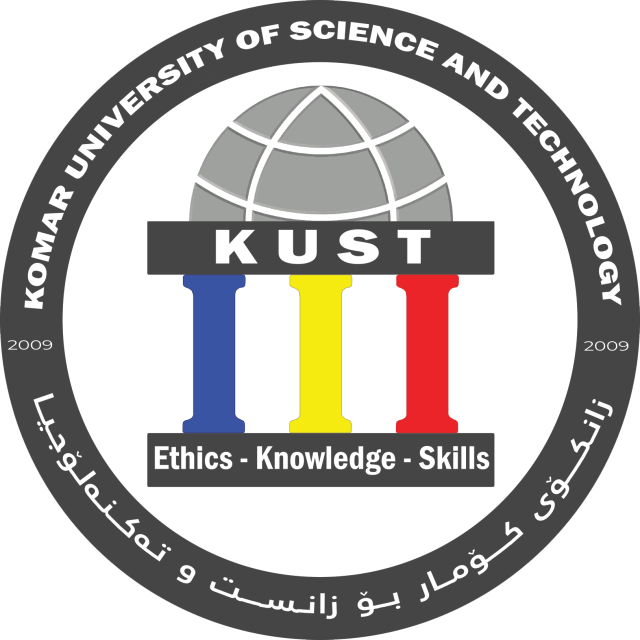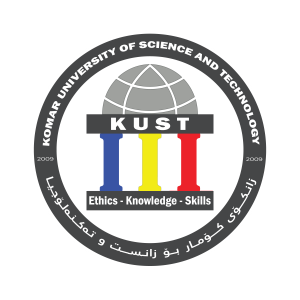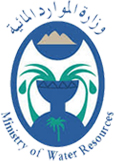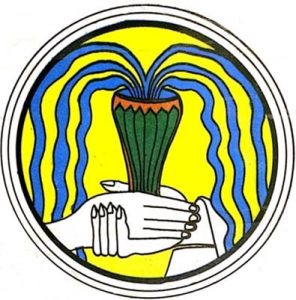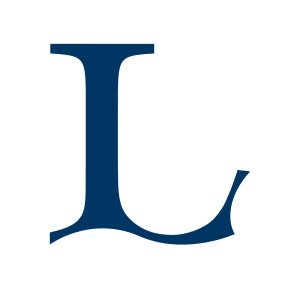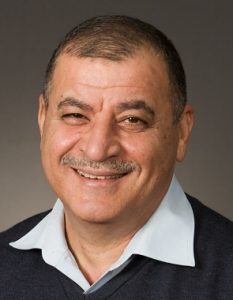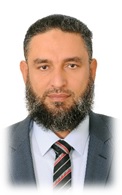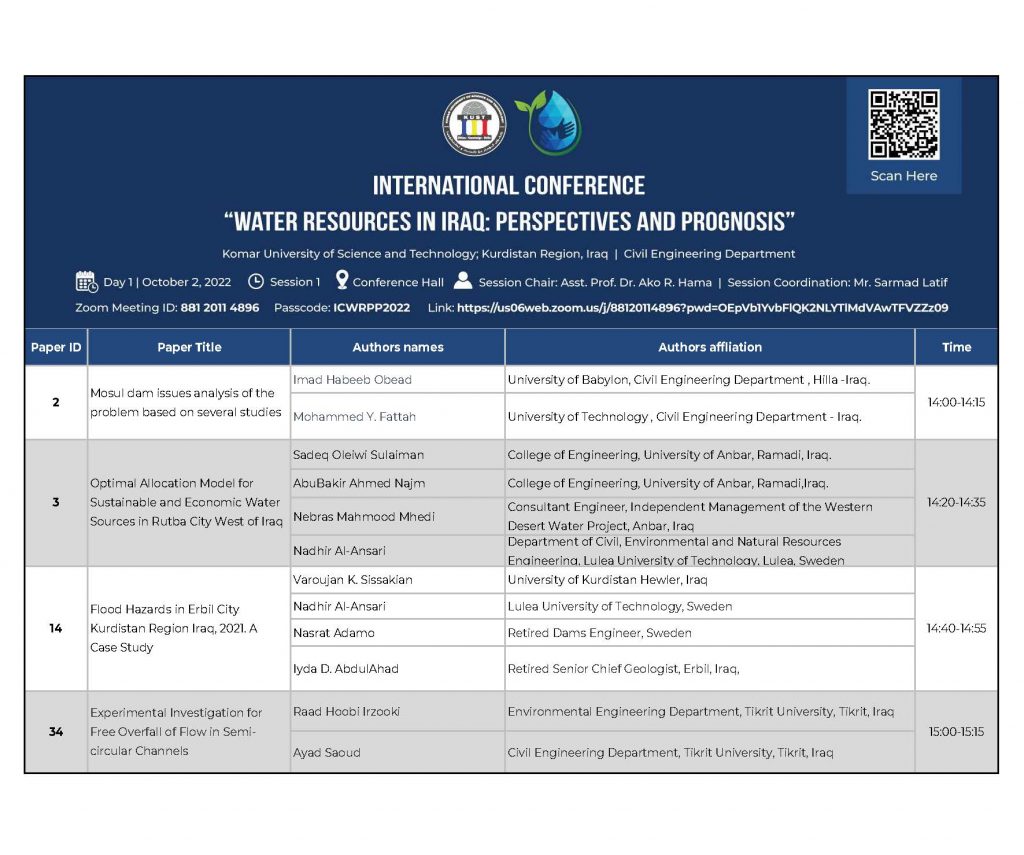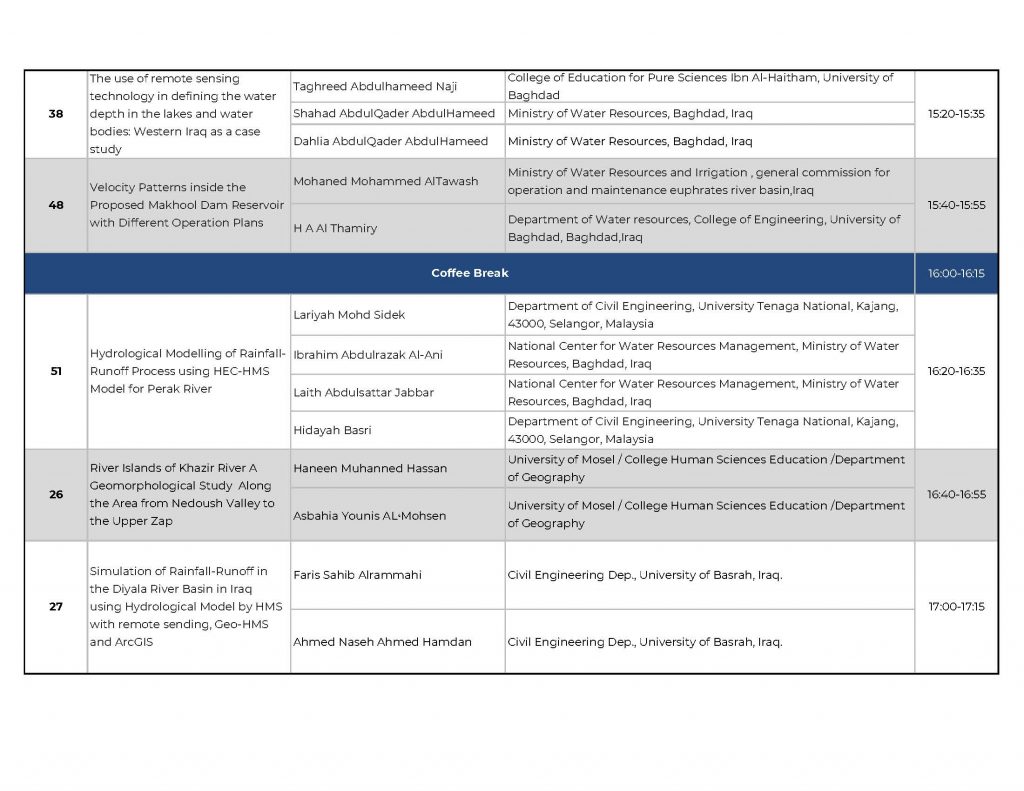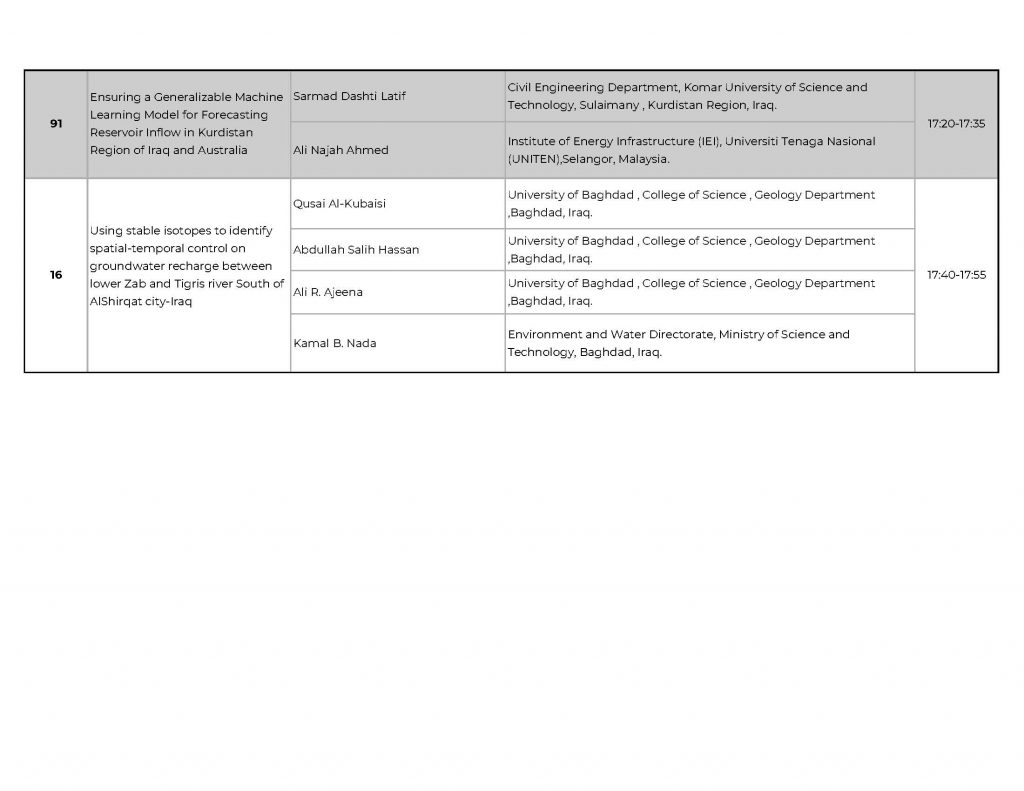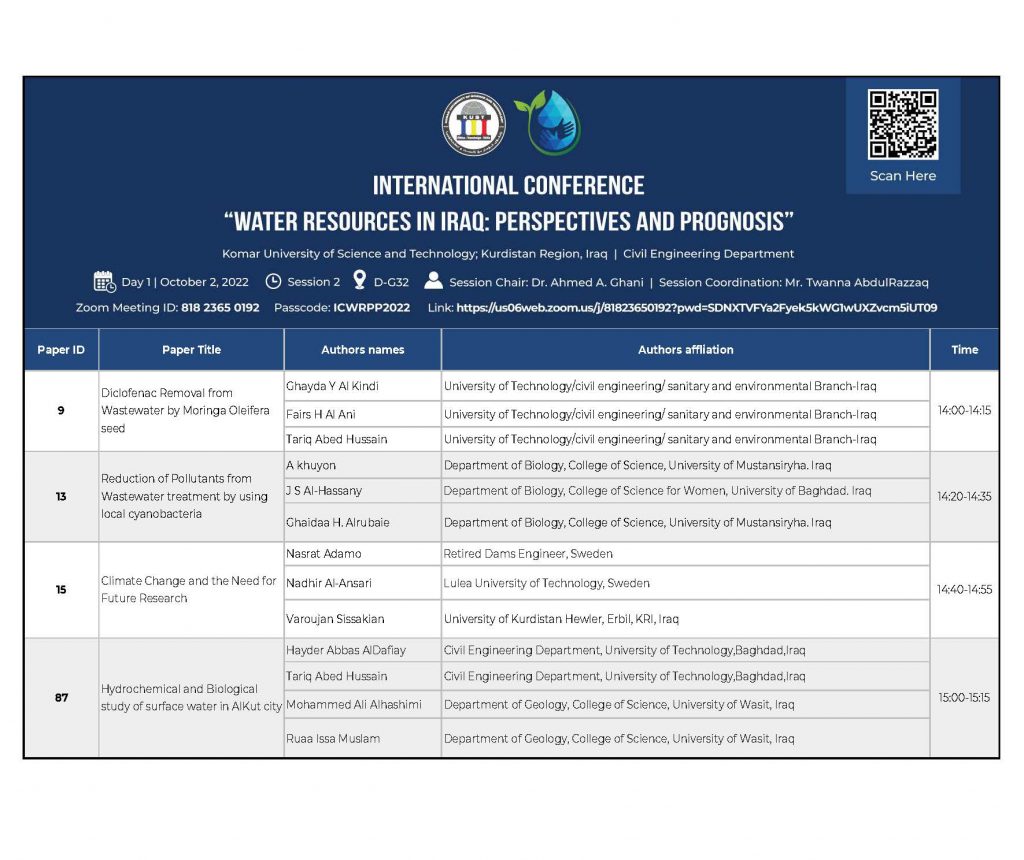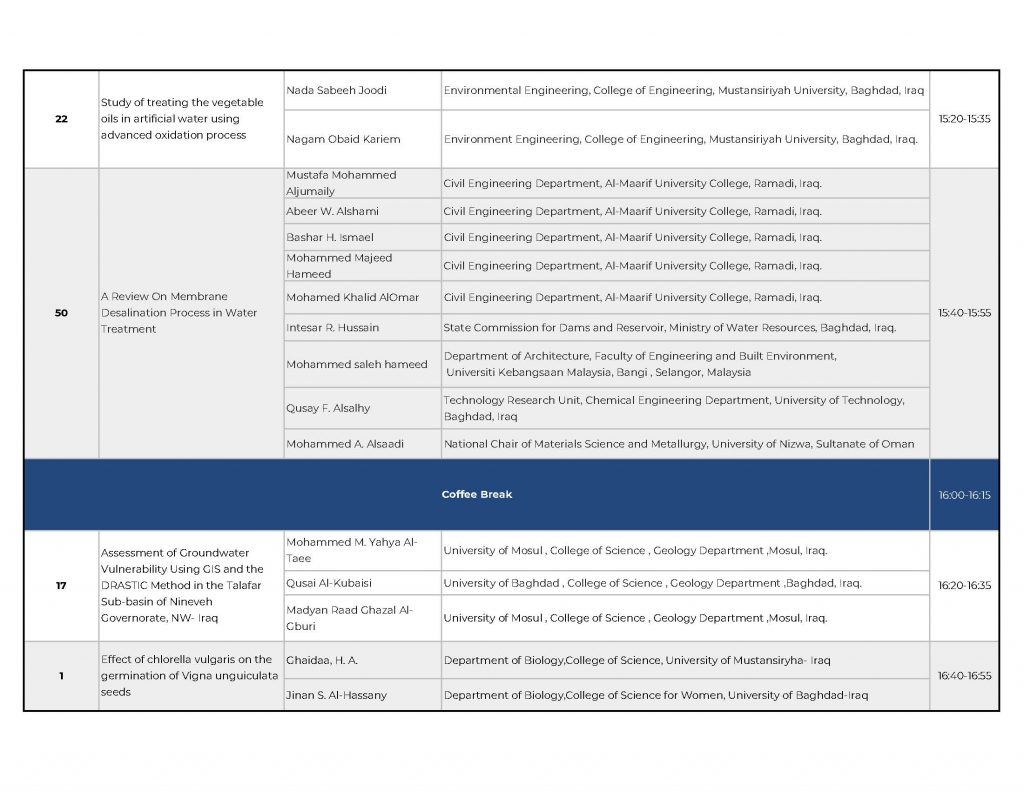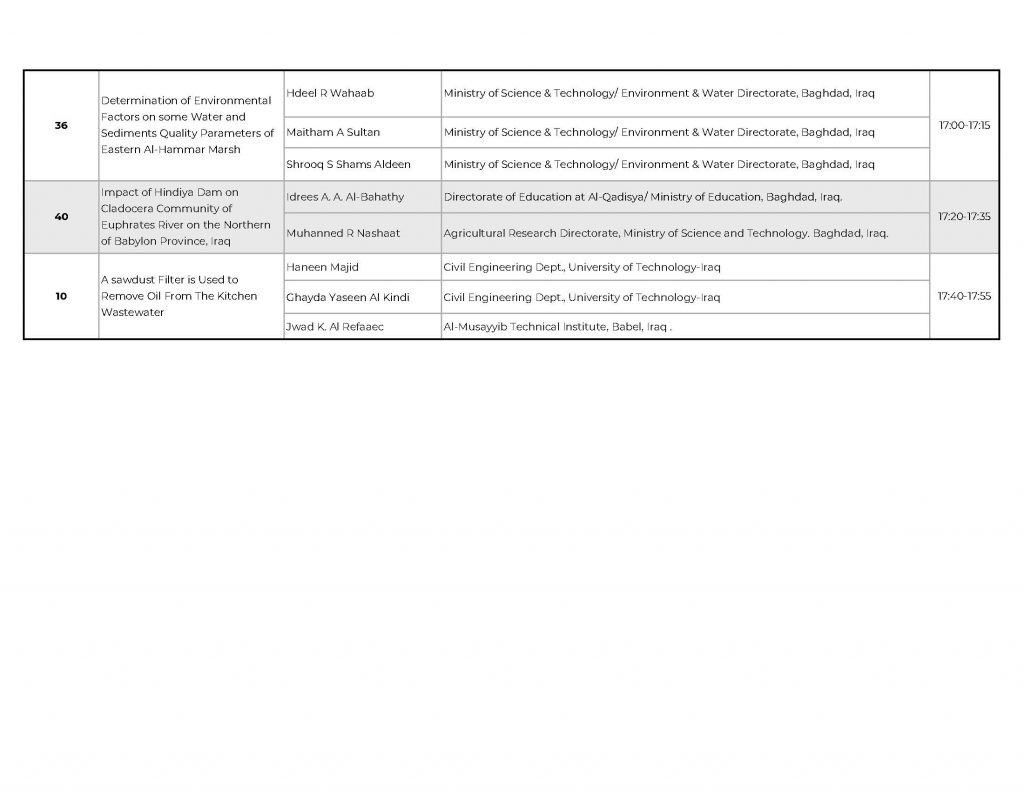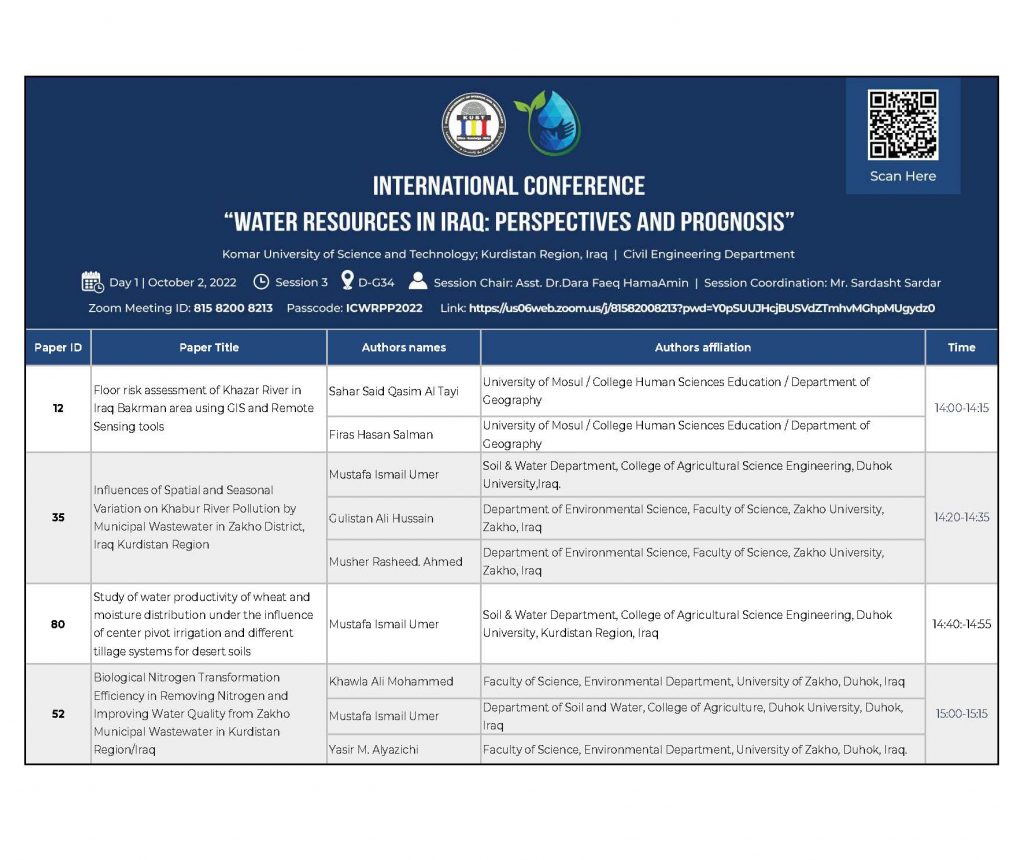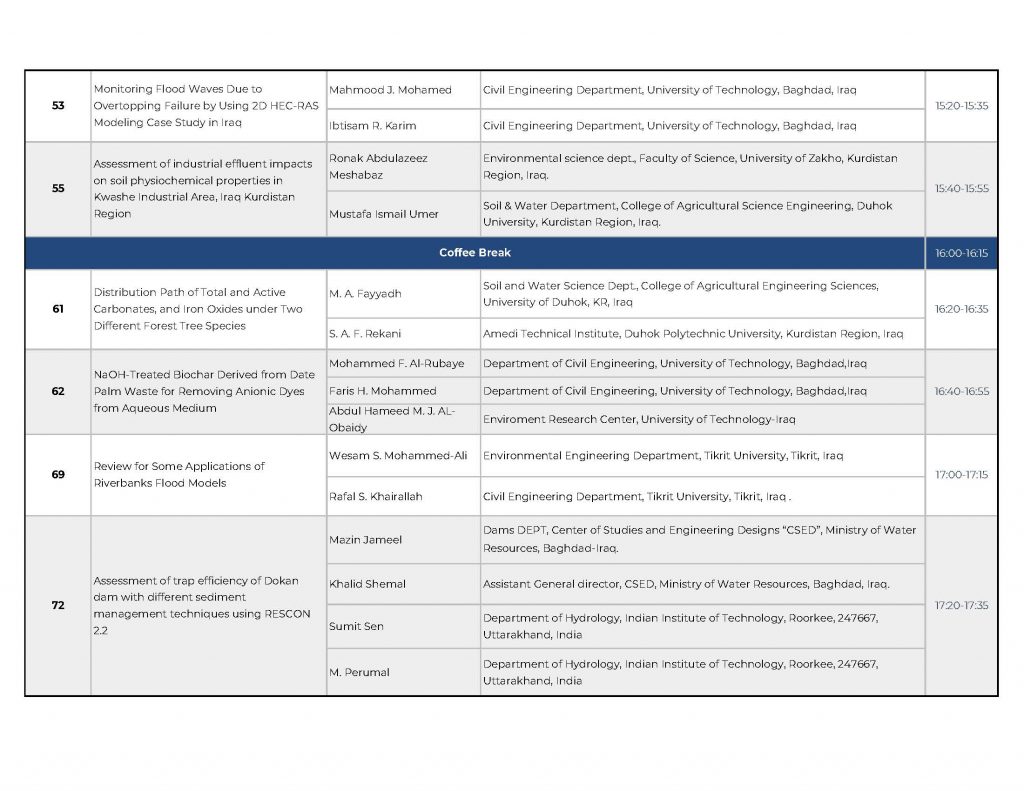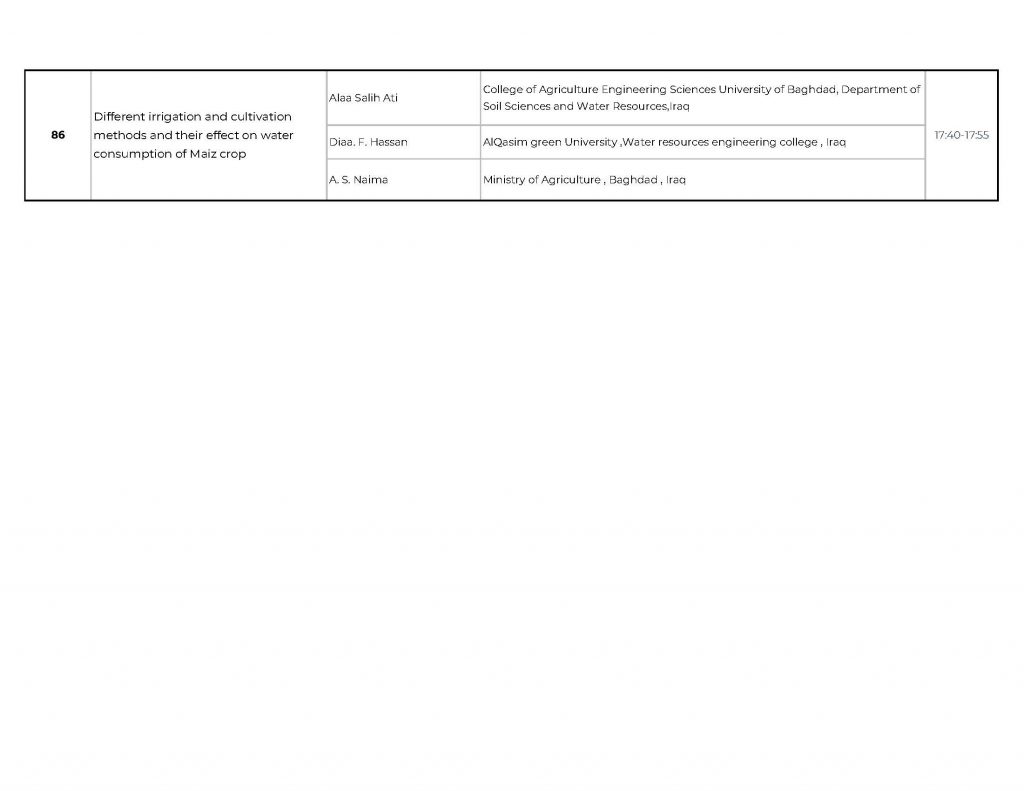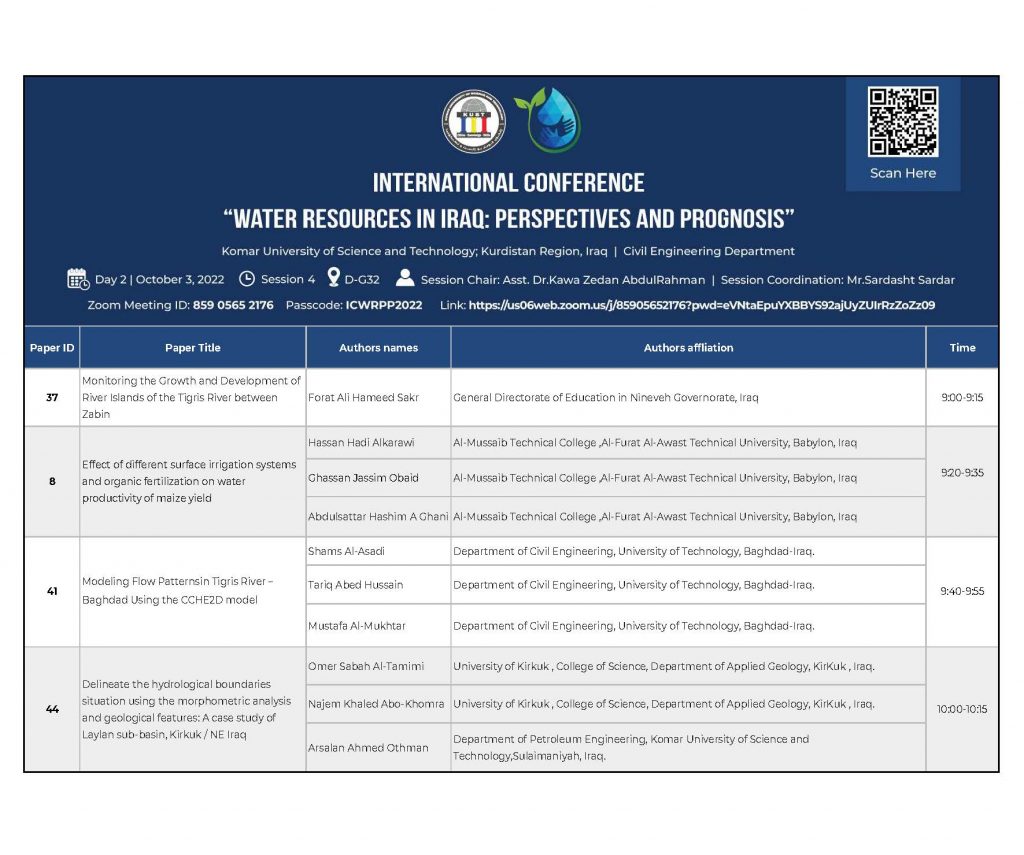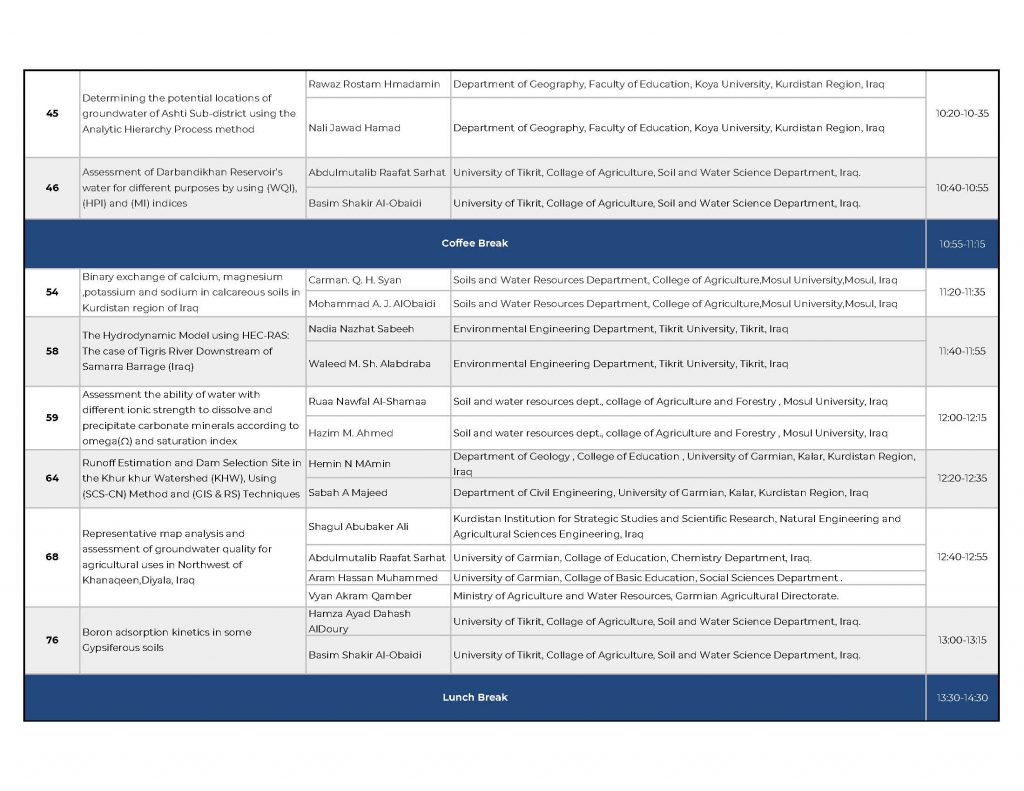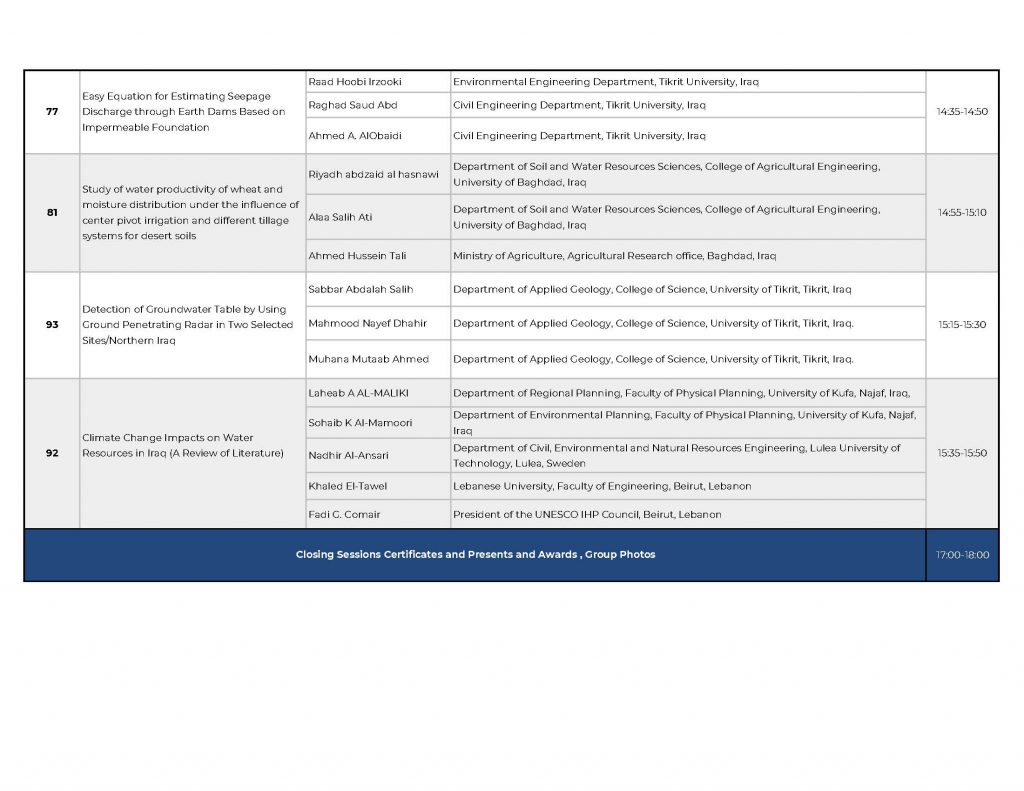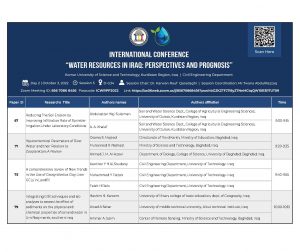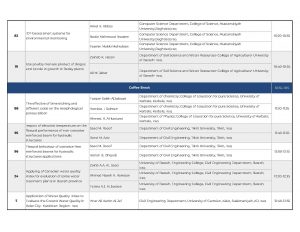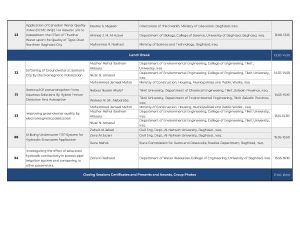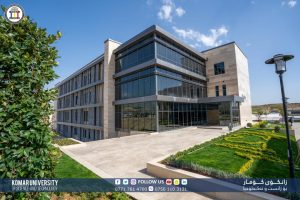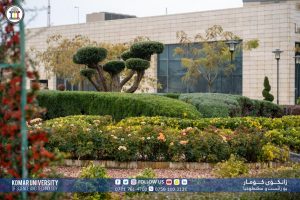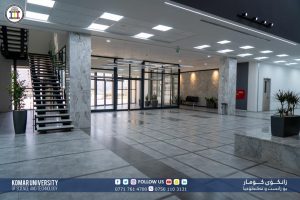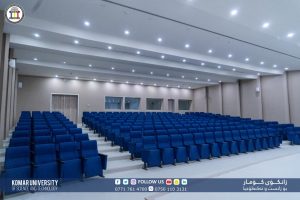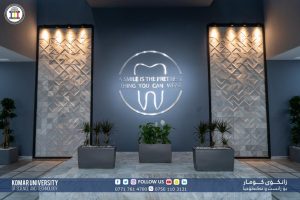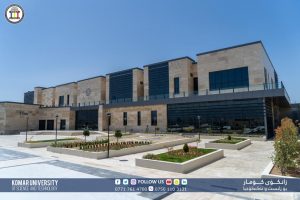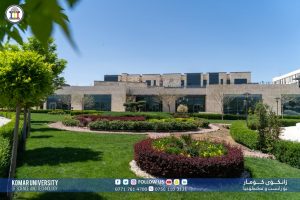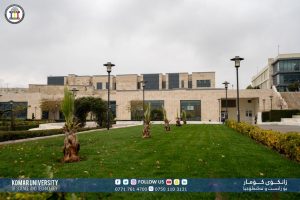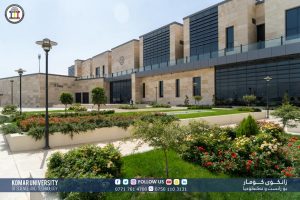
2nd International conference “Water Resources in Iraq: Perspectives and Prognosis”
Date: 2nd ,3rd and 4th of October 2022 Sulaimani,
Kurdistan Region, Iraq
Komar university of science and technology in Sulaimania, KR, Iraq in cooperation with Lulea University of science and technology in Sweden, United Nation, Ministry of water resources, AlRafidain NGO and APSU NGO for sustainability hold the second international conference for water resources and environment entitled “2nd International conference : Water Resources in Iraq : Perspectives and Prognosis “ ICWRPP 2022.
Topics and Sessions :
The conference will mainly include three main sessions with topics of interest for submission includes water resources and environment for example but are not limited to:
First Session : Water Resources
-
-
- Agriculture and Water Resources
- Water Quality
- Applied Surface and Groundwater Hydrology
-
Second Session :Environment
-
-
- Climate Change Impacts on Hydrology and Water Resources
- Climate Change, Mitigation and Adaption
- Monitoring, Modelling and Prediction of Water Pollution
-
Third Session :Perspectives and Risks in Water Resources
-
-
- Water-related Disaster Risk Reduction
- Sediment Transport and River Engineering
- Management of Groundwater and Surface water
- Forecasting and Control of Water Resources
- Water Resources Data Assessment Techniques
- Storm water Management and Low Impact Development
- Sustainable Irrigation Water Management
- Remote Sensing in Water Resources
- Geomatics and Geoinformatics and water resources
-
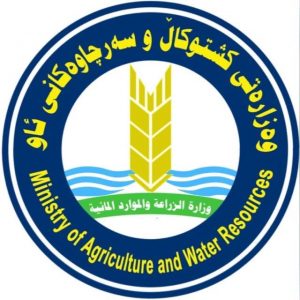
Ministry of Agriculture and Water Resources
Kurdistan Region Governorate
Iraq
Ministry of Water Resources
Iraq
Luleå University of Technology
Sweden
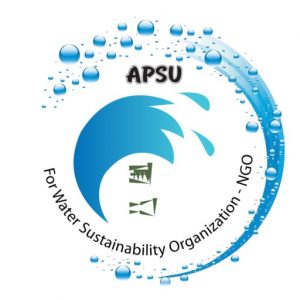 APSU for Water Sustainability Organization NGO
APSU for Water Sustainability Organization NGO
Iraq
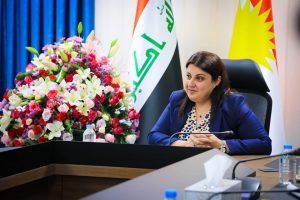
Begard D. Talabani
Minister of Agriculture and Water Resources , Kurdistan Region Government , Iraq
Begard D. Talabani biologist and she is minister at the Kurdistan Region Government . She is member in the Patriotic Union of Kurdistan (PUK) Leadership council since 1991 . She was born in Kalkan – Sulaimani City 1978. She is married and mother of two kids . She occupied deferent political and Kurdistan Region Parliament Positions : KR Parliament Secretary 2018, KR Parliament member and head of PUK parliament fraction in its fourth round 2014-2017 , Head of the following up office in PUK head quarter 2009-2013.
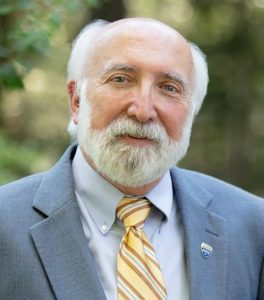
Dennis D. Truax, Ph.D., P.E., BCEE, D.WRE, F.NSPE, F.ASCE
ASCE 2022 President
ASCE President Dennis D. Truax’s academic career spans 41 years as School Director, Department Head, research center director, and professor. Dr. Truax served on ASCE’s Board of Direction, first as a director and later as treasurer, and on countless ASCE committees and task forces. He is a Fellow and Life Member of ASCE, Chapter Honor Member of the Mississippi State’s Chi Epsilon chapter, and a Distinguished Alumnus of the Charles E. Via, Jr. Department of Civil and Environmental Engineering at Virginia Tech. He received the 2018 NCEES Distinguished Service Award and ASCE’s 2020 Friedman Professional Recognition Award.He was the faculty advisor to the Mississippi State University ASCE Student Chapter for 26 years. During this time, they received two Ridgway Awards, two national service awards, and numerous other society recognitions. The chapter qualified for the national concrete canoe competition five times and the AISC steel bridge competition three times. He also served as faculty advisor for the EWB chapter which install drinking water wells in southern Zambia to bring clean, sustainable drinking water to about 10,000 people who had none.A licensed Professional Engineer, he has national certifications as an environmental engineer and as a water resources engineer having worked on projects throughout the world, including the design of over 550 water and wastewater treatments systems, hazardous and solid waste facilities, surface water quality modeling, and watershed management projects.
Professor Dr. Nadhir Al-Ansari
Professor at the department of Civil, Environmental and Natural Resources Engineering at Lulea Technical University Sweden. Previously worked at Baghdad University 1976-1995 then at Al-Bayt University in Jordan (1995- 2007). Research interests are mainly in Geology, Water Resources and Environment. Served several academic administrative post (Dean, Head of Department). Publications include more than 780 articles in international/national journals, chapters in books and 22 books. I executed more than 60 major research projects in Iraq, Jordan, Sweden and UK. Awarded several scientific and educational awards, among them is the British Council on its 70th Anniversary awarded him top 5 scientists in Cultural Relations. One patent on Physical methods for the separation of iron oxides. Supervised more than 70 postgraduate students at universities in Iraq, Jordan, UK, Sweden and Australia. Member of several scientific societies e.g. International Association of Hydrological Sciences, Chartered Institution of Water and Environment Management, etc. Member of the editorial board of 30 international journals
Dr. Mohammed AbdulHakim AlSaadi
PhD. Biotechnology Engineering (Nanotech./Chem Eng.), M.Sc. and B.Sc. Chemical Engineering
Dr. Mohammed AbdulHakim AlSaadi has been a chemical engineer with industrial and academic experience. currently, he is an associate professor in the National Chair of Material sciences and Metallurgy and Chemical Engineering Dept., University of Nizwa, Sultanate of Oman and a visiting senior lecturer in nanotechnology and catalyst research center (NANOCAT), University of Malaya. He joined NANOCAT in 2014 after working for four years in the university of Malaya center for ionic liquid (UMCiL), Department of chemical Engineering, Faculty of engineering. He moved to Malaysia from Iraq in 2006 to obtain his PhD in the department of biotechnology engineering, Kulleyah of Engineering, International Islamic University Malaysia (IIUM) , his research was to synthesize Carbon nanotubes for removal of heavy metal from water. In Iraq, after getting B.Sc. in University of technology, 1991 and M.Sc. in College of Engineering, University of Baghdad, 1995, both in chemical engineering. He worked in industry as well as in academia as a deputy dean in Almaaref university and a lecturer in college of engineering, university of Al-Anbar. Dr. Mohammed AbdulHakim specialization mainly is in the field of carbon nanomaterials and their applications in water treatment, membrane technology, sensors, drug delivery and composite material. He contributed to the research in Ionic liquids and deep eutectic solvents and their applications in biodiesel and nanohybride. He filed number of patents in Nanotechnology and DESs. He obtained several awards in the research fields such as the royal award of innovation in water technology from sultanate of Oman. He published around forty scientific research article in peer reviewed ISI Journals such as Scientific reports of ( NATURE), Journal of electroanalytical Chemistry, Water Science and Technology, journal of medicinal chemistry, Chemical Engineering Journal, Chemosphere and many other journals. Dr. Mohammed AbdulHakim AlSaadi has taught several courses in many chemical engineering and related subjects such as fluid flow, thermodynamics, engineering materials, analytical chemistry, optimization, and heat transfer.
Aim and Mission :
This conference is an international annual conferences and the accepted research articles and papers will be published in “IOP Conference Series: Earth and Environmental Science “ a journal indexed in Scopus and other 19 international journal indexers . This conference is an attempt to access and highlight the main perspectives and prognoses for water resources critical issues, levels and situations in Iraq and Kurdistan Region. Also, it is founded as an attempt to prepare a contribution and a collaboration worksheet paper from different affiliated experts, researchers, academists and entities from the Iraqi Federal Government, UN, Komar University of Science and Technology, Rafidain NGO,APSU for water sustainability NGO, Lulea Technical University and others and it’s a hope they work together in the area of water resources security and forecasting for now and in the future of Iraq . Also, the participants have a chance to integrate and share their knowledge, information, data and experiences together and update them so as to enhance the efficiency of Iraqi water resources management system and policy. As the whole world in general and specifically Kurdistan region and Iraq are facing a serious global warming, water shares from neighbors of the country challenges and recent water issue conflicts, all of the mentioned points have made these challenges more difficult and led to environmental pollution, and declining rainfall intensity mostly in the regions across the country. This conference intends to bring together the experts from Iraq and other international and UN agencies and concentrate all the applications of their submitted articles, researches, ideas, initiatives and guidance in the field of water resources issues for Iraqi’s people. This conference is very necessary in understanding the threats and consequences of global climate changes, water pollution, dam’s activities, and current water shortage and usage practices. Relevant government officials are invited to work together with academics in developing a master plan to use relevant water data for future planning and forecasting.
Important Dates :
- Call for papers : April 22, 2022
- Deadline for submitting papers : August 1, 2022
- Deadline for the paying the publication and registration fee August 25,2022
- The conference days : 2 – 4 October 2022
Submitting Paper Manuscripts and Publisher
Publisher :
The accepted articles will be published in “which is one of the well-known journals and indexed in Scopus and the following other 19 international journal indexers as in following :
Conference Proceedings Citation Index—Science (CPCI-S) (Clarivate, Web of Science), CABI ,CNKI,GEOBASE ,GeoRef ,Inspec ,J-Gate ,JST ,NASA Astrophysics Data System ,Naver Academic , Scite , Scopus , WTI Frankfurt , Yewno , OCLC Worldcat , EX Libris Primo , EBSCO Discovery Service , British Library Services , Google Scholar , Serial Solutions , TDNET , INIS
The journal ISSN printed and online as in the following :
ISSN:1755-1307 – E-ISSN:1755-1315
Submitting Paper Manuscripts
Authors and researchers have to use the following links for submitting the manuscripts:
https://www.morressier.com/call-for-papers/625840540d86f90012565256
Templates and guidelines for proceedings papers
These are our templates and guidelines for proceedings papers, they are there to to help you prepare your work.
Essential guidelines
Please follow these essential guidelines when preparing your paper:
Templates
Authors must prepare their papers using our Microsoft Word or LaTeX2e templates, and then convert these to PDF format for submission:
As a summary, please ensure the following:
- Paper size is European A4.
- Margins are 4cm (top), 2.5cm (left and right) and 2.7cm (bottom).
- The paper includes the author name and affiliation (full address including country).
- There are no page numbers, or headers and footers, within the paper.
- The PDF is free of formatting errors (e.g. corrupt equations, missing or low-resolution figures), since conversion from Word to PDF can introduce formatting errors.
- Text is single spaced, not double spaced.
- The PDF file is editable and not password protected.
- All pages are portrait (landscape pages should be rotated).
- Reference lists are checked for accuracy. References can only be linked via Crossref if they are correct and complete.
- Figures are placed within the text, not collected at the end of the document.
- A thorough proofread is conducted to check the standard of English and ensure wording is clear and concise.
October 2,2022 – Day One
October 2,2022 – Day 1
Session 2
October 2,2022 – Day One
Session 3
October 3,2022 – Day Two
Session Four
October 3,2022 – Day Two
Session 5
Venue :
The conference will be held at Komar University of , Science and Technology, D-Building, Conference Hall , Iraq, Sulaimani, Qualaraisy
Water Resources in Iraq: Perspectives and Prognosis (ICWRPP 2022) 01/10/2022 – 04/10/2022 Sulaimani, Iraq
Preface
Peer Review Statement
Water Resources
- Optimal Allocation Model for Sustainable and Economic Water Sources in Rutba City West of Iraq
Sadeq Oleiwi Sulaiman, AbuBakir Ahmed Najm, Nebras Mahmood Mhedi and Nadhir Al-Ansari - Water Quality Index Application to Evaluate the Ground Water Quality in Kalar City- Kurdistan Region- Iraq
Hnar Ali Karim Al-Jaf - Effect of different surface irrigation systems and organic fertilization on water productivity of maize yield.
Hassan H Alkarawi, Ghassan J Obaid and Abdulsattar H A Ghani - Using Stable Isotopes To Identify Spatial-Temporal control on Groundwater Recharge Between Lower Zab and Tigris River South of Al-Shirqat City-Iraq.
Q.Y Al-Kubaisi, A. S Hassan, K. B. Nada and Ali. R. Ajeena - Applying of Canadian water quality index for evaluation of some water treatment plants in Basrah province
Zainb A.A. Al Saad, Ahmed N. A. Hamdan and Fatma A.J. ALbadran - River Islands of Khazir River A Geomorphological Study Along the Area from Nedoush Valley to the Upper Zap
Asbahia Younis Al،Mohsen and Haneen Muhanned Hasan - Simulation of Rainfall-Runoff in the Diyala River Basin in Iraq using Hydrological Model by HMS with remote sensing, Geo-HMS and ArcGIS
Faris Sahib Alrammahi and Ahmed Naseh Ahmed Hamdan - Removal of Acetaminophen from Aqueous Solutions by Hybrid Fenton Oxidation and Adsorption
N N Khalaf and W M Sh. Alabdraba - Softening of Groundwater at Samarra City by Electromagnetic Polarization
Muzher Mahdi Ibrahem Aldoury, Nizar N. Ismaeal and Mohammed Jameel Mahdi - Experimental Investigation for Free Overfall of Flow in Semi-circular Channels
Raad Hoobi Irzooki and Ayad Saoud Najem - Monitoring the Growth and Development of River Islands of the Tigris River between Zabin
Forat Ali Hameed sakr - Modeling Flow Patterns in Tigris River – Baghdad Using the CCHE2D model
Shams Al-Asadi, Tariq Abed Hussain and Mustafa Al-Mukhtar - Delineate the hydrological boundaries situation using the morphometric analysis and geological features: A case study of Laylan sub-basin, Kirkuk / NE Iraq
Omer Sabah Al-Tamimi, Najem Khaled Abo-Khomra and Arsalan Ahmed Othman - Assessment of Darbandikhan Reservoir’s water for different purposes by using (WQI), (HPI) and (MI) indices
Basim Shakir Al-Obaidi and Abdulmutalib Raafat Sarhat - Velocity Patterns inside the Proposed Makhool Dam Reservoir with Different Operation Plans
M M Altawash and H A Al Thamiry - Binary exchange of calcium, magnesium, potassium and sodium in calcareous soils in Kurdistan region of Iraq
M A J Al–Obaidi and C M H Syan - The Hydrodynamic Model using HEC-RAS: The case of Tigris River Downstream of Samarra Barrage (Iraq)
Nadia Nazhat Sabeeh and Waleed M. Sh. Alabdraba - Assessment the ability of water with different ionic strength to dissolve and precipitate carbonate minerals according to omega(Ω) and saturation index (SI)
R N N AL-Shamaa and H M Ahmad - Runoff Estimation and Dam Selection Site in the Khur khur Watershed (KHW), Using (SCS-CN) Method and (GIS & RS) Techniques
Hemin N Mamin and Sabah A Majeed - Reducing The Soil Erosion by Improving Infiltration Rate of Sprinkler Irrigation Under Laboratory Conditions
A. H. Sulaiman and A. A. Khalaf - Representative map analysis and assessment of groundwater quality for agricultural uses in Northwest of Khanaqeen, Diyala, Iraq
Shagul Abubaker Ali, Abdulmutalib Raafat Sarhat, Aram Hassan Muhammed and Vyan Akram Qamber - Boron adsorption kinetics in some Gypsiferous soils
Hamza Ayad Dahash Al-Doury and Basim Shakir Al-Obaidi - Easy Equation for Estimating Seepage Discharge through Earth Dams Based on Impermeable Foundation
Raghad Saud Abd, Raad Hoobi Irzooki and Ahmed A. Al-Obaidi - Study of water productivity of wheat and moisture distribution under the influence of center pivot irrigation and different tillage systems for desert soils
Riyadh Abdzaid Al Hasnawi, Alaa Salih Ati and Ahmed Hussein Tali - Climate change impact on water resources of Iraq (a review of literature)
Laheab A Al-Maliki, Sohaib K Al-Mamoori, Nadhir Al-Ansari, Khaled El-Tawel and Fadi G. Comair - Detection of Groundwater Table by Using Ground Penetrating Radar in Two Selected Sites/Northern Iraq
Sabbar Abdalah Salih, Mahmood Nayef Dhahir and Muhana Mutaab Ahmed
Environment
- Mosul dam issues: analysis of the problem based on several studies
Imad Habeeb Obead and Mohammed Y. Fattah - A sawdust Filter is Used to Remove Oil From The Kitchen Wastewater
Haneen Majid, Ghayda Yaseen Al Kindi and Jwad K. Al Refaaec - Climate Change and the Need for Future Research
Nasrat Adamo, Nadhir Al-Ansari and Varoujan Sissakian - Use poultry manure product of Biogas and its role in growth in Barley plants
Zainab K. Hasan and Ali M. Jaber - Study of treating the vegetable oils in artificial water using advanced oxidation process
Nada Sabeeh Joodi and Nagam Obaid Kariem - Improving Groundwater Quality by Electromagnetic Polarization
Mohammed Jameel Mahdi, Muzher Mahdi Ibrahem Aldoury and Nizar N. Ismaeal - Influences of Spatial and Seasonal Variation on Khabur River Pollution by Municipal Wastewater in Zakho District, Iraq Kurdistan Region
Gulistan Ali Hussain, Mustafa Ismail Umer and Musher Rasheed. Ahmed - Determination of Environmental Factors on some Water and Sediments Quality Parameters of Eastern Al-Hammar Marsh
Hdeel R Wahaab, Maitham A Sultan and Shrooq S Shams Aldeen - A Review On Membrane Desalination Process in Water Treatment
Mustafa Mohammed Aljumaily, Abeer W. Alshami, Bashar H. Ismael, Mohammed Majeed Hameed, Mohamed Khalid AlOmar, Intesar R. Hussain, Mohammed saleh hameed, Qusay F. Alsalhy and Mohammed A. Alsaadi - Biological Nitrogen Transformation Efficiency in Removing Nitrogen and Improving Water Quality from Zakho Municipal Wastewater in Kurdistan Region/Iraq
Khawla Ali Mohammed, Mustafa Ismail Umer and Yasir M. Alyazichi - Assessment of industrial effluent impacts on soil physiochemical properties in Kwashe Industrial Area, Iraq Kurdistan Region.
Ronak Abdulazeez Meshabaz and Mustafa Ismail Umer - Distribution Path of Total and Active Carbonates, and Iron Oxides under Two Different Forest Tree Species
M. A. Fayyadh and S. A. F. Rekani - Review for Some Applications of Riverbanks Flood Models
Wesam S. Mohammed-Ali and Rafal S. Khairallah - Physicochemical Parameters of River Water and their Relation to Zooplankton: A Review
Osama S. Majeed, Muhanned R. Nashaat and Ahmed J. M. Al-Azawi - Assessment of trap efficiency of Dokan dam with different sediment management techniques using ResCon 2.2
M Jameel, K Shemal, S Sen and M Perumal - Integrating GIS techniques and lab analyses to assess the effect of sediments on the physical and chemical properties of soil and water in Um Naaj marsh, southern Iraq
Awad A Sahar, Hashim H. Kareem and Ammar A Jasim - Validity of Primary Treated Wastewater for Irrigation and Assessment of their Potential Health Risk
Mustafa Ismail Umer - Hydrochemical and Biological study of surface water in Al-Kut city
Hayder Abbas Aldafiay, Tariq Abed Hussain, Mohammed Ali Alhashimi and Ruaa Issa Muslam - The effective of time etching and different acids on the morphological porous silicon
Furqan Saleh Al-Jubouri, Hamida. I. Salman and Ahmed. K. Al-Kadumi - Utilizing Underwater FRP System for Hydraulic Structures Application
Zuhair Al-Jaberi, Zena Al-Jazeri and Rana Mahdi
